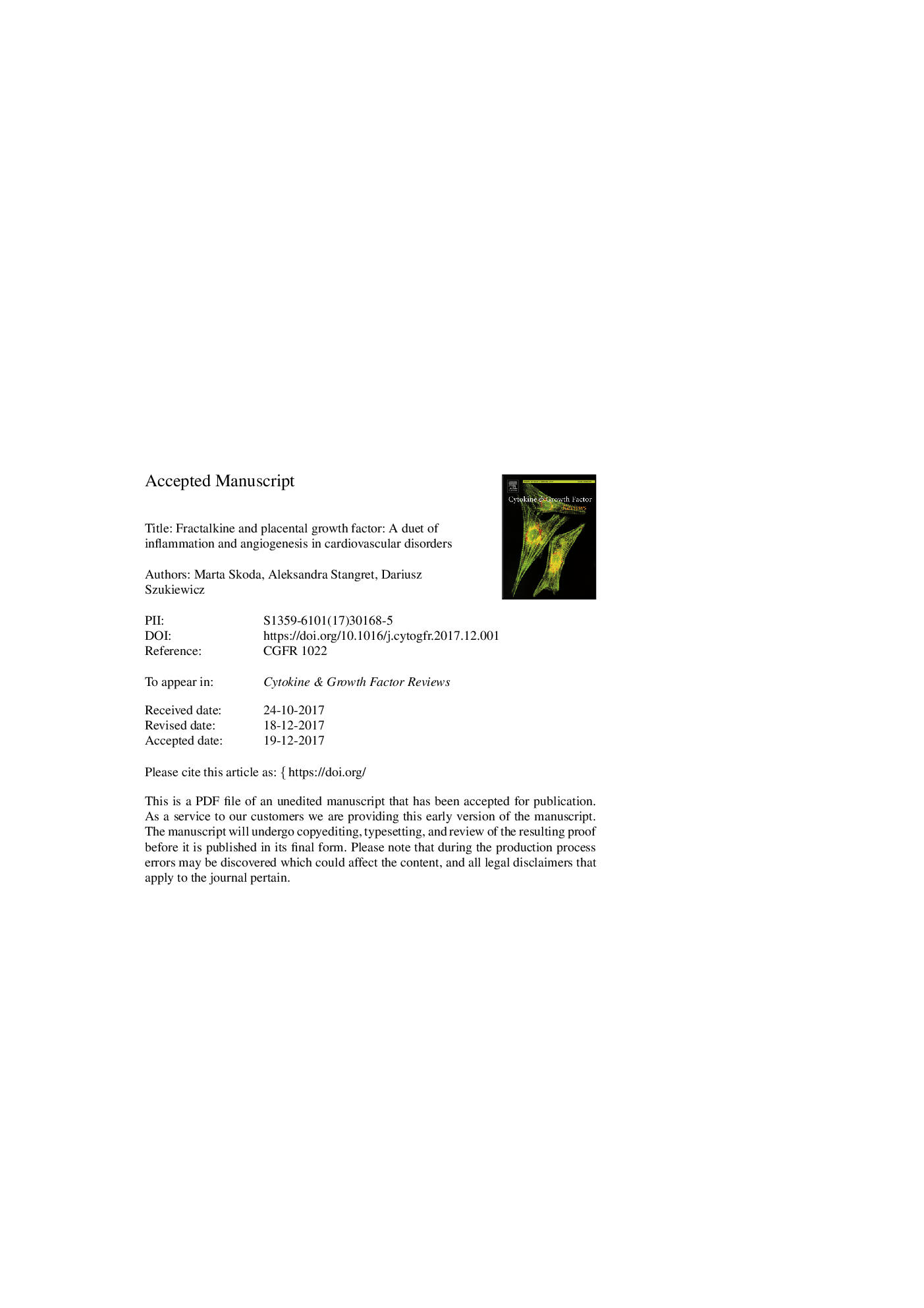| Article ID | Journal | Published Year | Pages | File Type |
|---|---|---|---|---|
| 8466340 | Cytokine & Growth Factor Reviews | 2018 | 19 Pages |
Abstract
Inflammation and angiogenesis are two interdependent processes underlying pathogenesis of cardiovascular disorders. The initiation and progression of atherosclerosis strongly depends on specific patterns of cytokine expression. In this review, we analyze correlation between expression of two members of the cytokine family and the processes of inflammation and angiogenesis related to atherosclerosis. Placental growth factor and chemokine CX3XL1 (fractalkine) promote inflammatory cell infiltration, angiogenesis and plaque rupture. Because these cytokines share similar roles during atherosclerotic development, their combined value as a predictor or indicator of inflammation and vascular healing may be extremely useful.
Keywords
PCIcluster of differentiation 40 ligandVEGFsFLK1ADAM 10CX3CL1SMCsFLT1PlGFVCAM-1hsCRPSTEMICX3CR1MCP-1NF-κBACSECsAtherosclerosisMyocardial infarctionAngiogenesisDESdrug-eluting stentinflammationST elevation myocardial infarctioncoronary artery diseasecardiovascular diseaseCVDSmooth muscle cellsEndothelial cellsAcute coronary syndromeCADplacental growth factorvascular endothelial growth factorsnuclear factor kappa-light-chain-enhancer of activated B cellsfractalkinepercutaneous coronary interventionmonocyte chemoattractant protein 1C-reactive proteinCRPvascular cell adhesion protein 1fetal liver kinase 1a disintegrin and metalloproteinase domain-containing protein 10
Related Topics
Life Sciences
Biochemistry, Genetics and Molecular Biology
Cell Biology
Authors
Marta Skoda, Aleksandra Stangret, Dariusz Szukiewicz,
